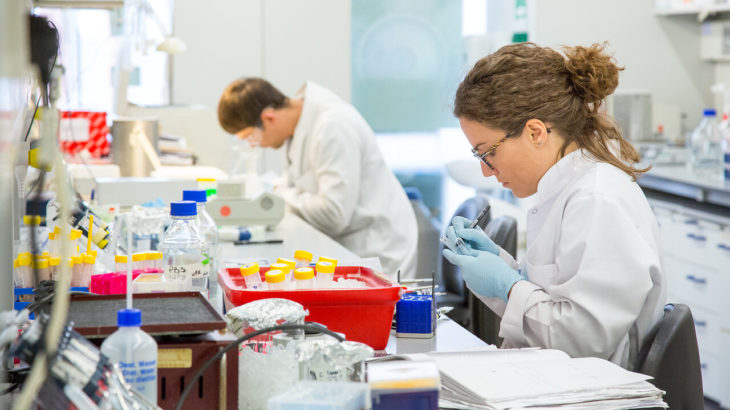Apprenticeships: uncovering technical talent

National Apprenticeship Week, a week-long celebration highlighting the benefits apprenticeships can have for individuals, employers, and their communities, took place last week.
For universities recruiting technical staff, apprenticeships are starting to become a key recruitment tool and now account for 11% of routes into technical careers, according to last year’s TALENT survey of technical staff.
With a national shortage of technicians across all sectors, a recent commission into technical careers has urged employers to invest in apprenticeship and trainee technician programmes to address these skill gaps.
Some SES members already turned to apprenticeships to recruit more technical talent to key roles in their institutions.
Queen Mary was the first Russell Group university to launch its first degree apprenticeship back in 2015, working with a range of leading employers. However, it also has a range of apprenticeships in STEM roles at the university itself, including laboratory technicians, infrastructure technicians and cyber security technologists.
The University of Cambridge has apprenticeships in areas including veterinary nursing, data analysis and senior leadership.
And some apprentices have come from academic and research background to gain skills in project management and other areas essential for the running of effective scientific research.
Tolulope Osunnuyi, biorepository manager at the MRC Epidemiology Unit is an example of someone from a scientific background who is gaining skills essential to managing research projects through an apprenticeship.
Meanwhile, electronics apprentice Catia Marceneiro Dos Santos is one of the technical talents of the future being trained at Cambridge under its apprenticeship programme. Her electronics apprenticeship at the Department of Engineering is coming to an end but she’s been offered a job in the department working as an electrical technician, supporting students and researchers with the electronic aspects of their projects.
At Imperial College London, the Laboratory Technician Apprenticeship Scheme is up and running, with apprentices in departments including bioengineering and chemistry. Over 28 months apprentices learn to work safely in a laboratory supporting research and teaching.
Laboratory technician apprentice Adriana Lobosco decided not to go university, but she is now working in one, assisting students and researchers with lab set ups and training PhD students and staff to use and maintain specific lab equipment.


